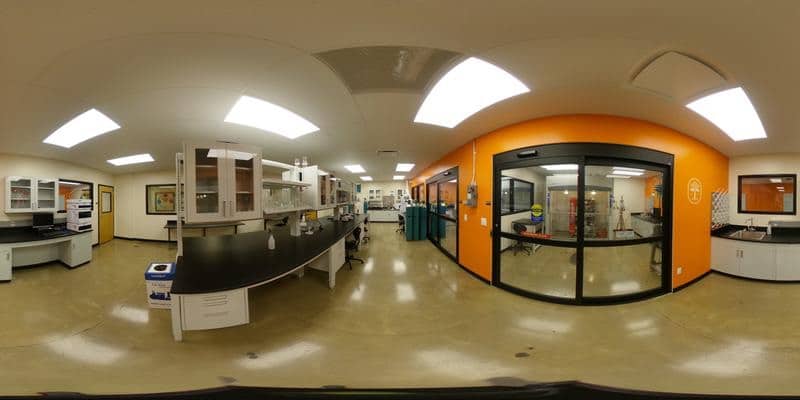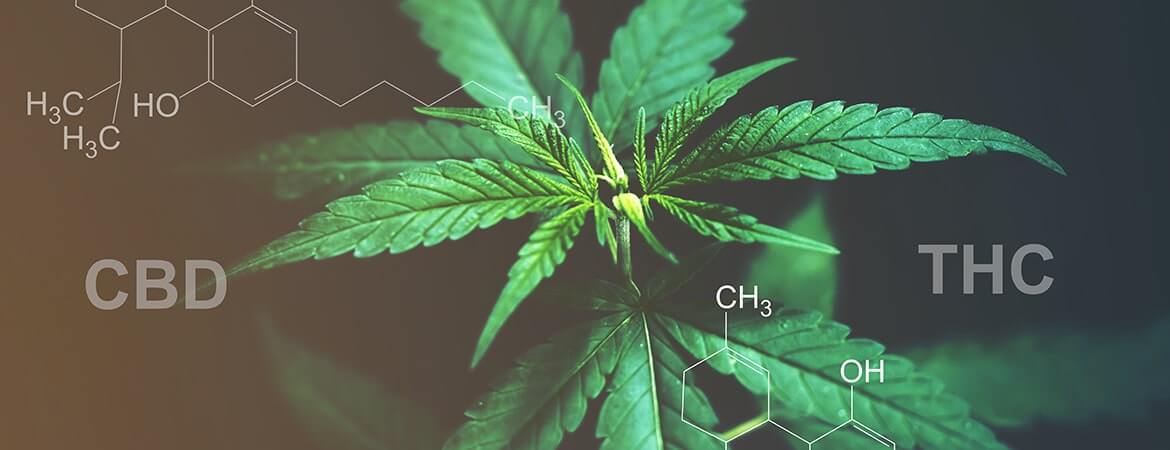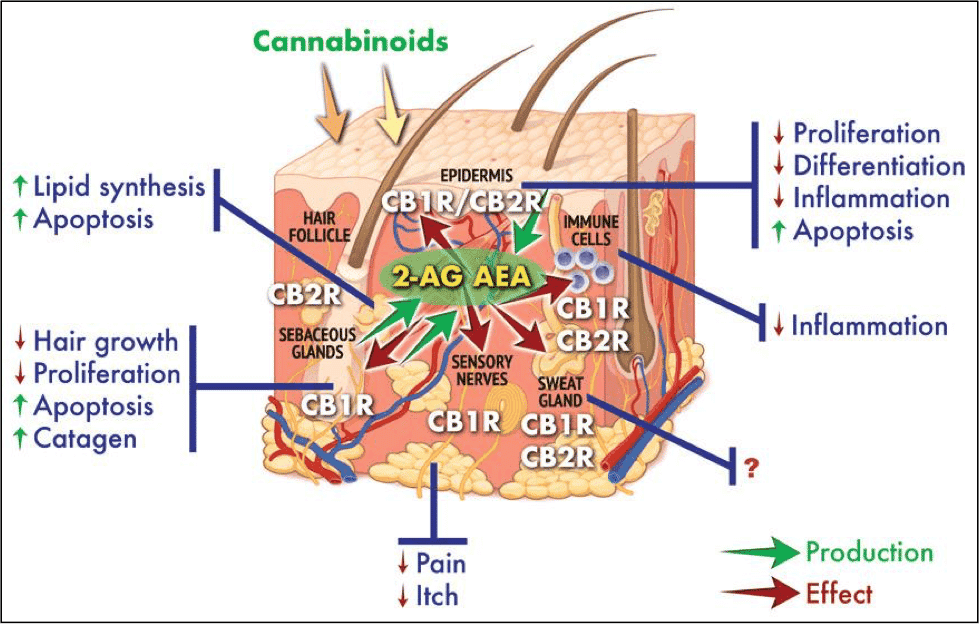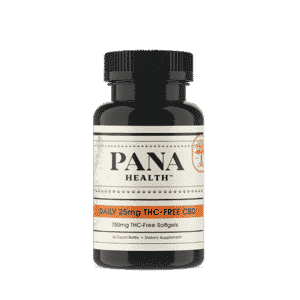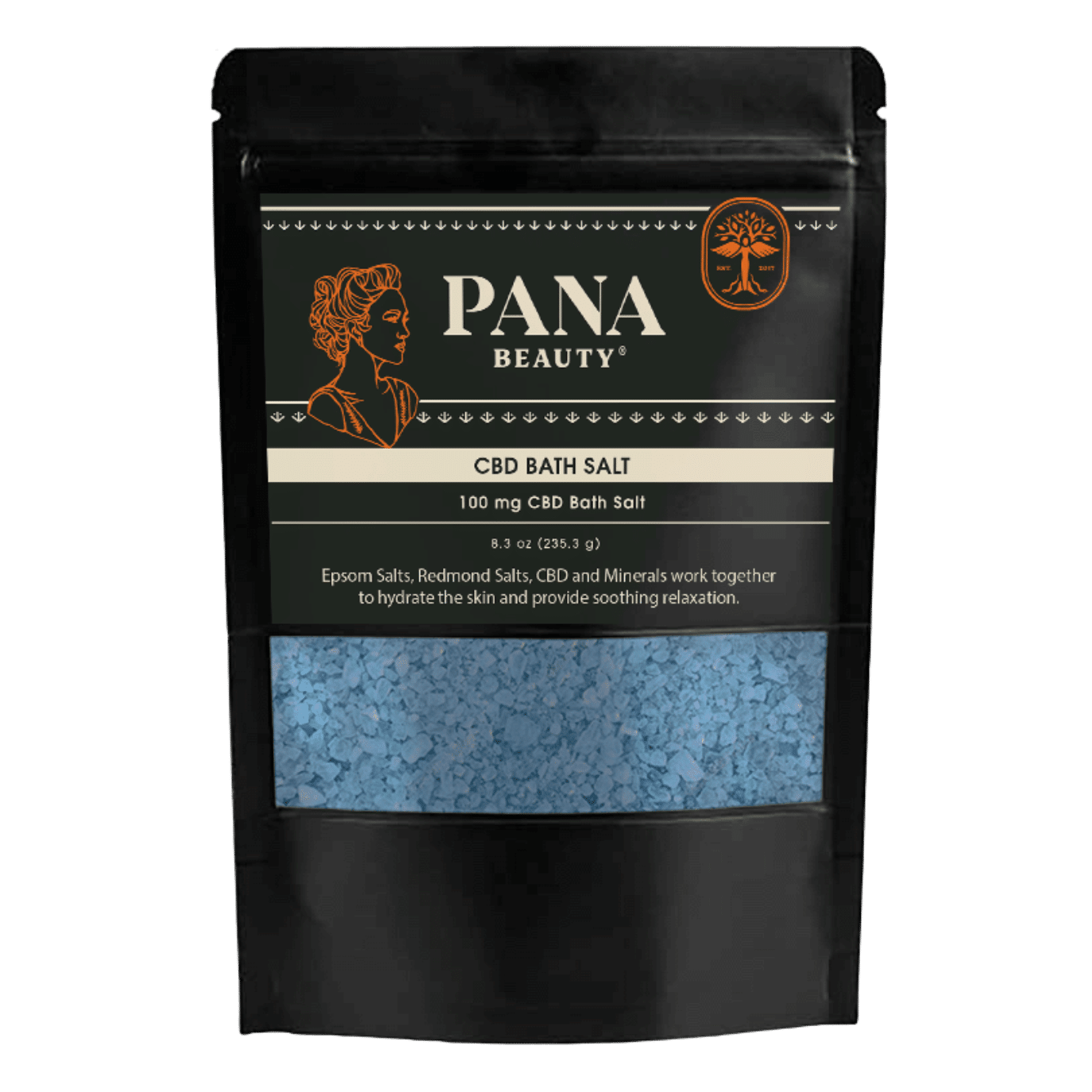Many people have heard of cannabidiol (CBD). After all, it seems to be everywhere you look. However, there also appears to be some major misunderstandings surrounding the compound. The main one is that CBD will get you high. This is an easy misconception to address because CBD does not get a user high. But let’s go into why it doesn’t and why people think it does.
Cannabinoids
CBD is one of over 113 chemical compounds found in Cannabis plants (like marijuana and hemp) that are known as cannabinoids. Some cannabinoids are not as well-known as others because they present in low concentrations and little research has been performed to understand how these cannabinoids will effect human or animal health. Another series of compounds that works with the cannabinoids are terpenes. Terpenes function to add flavor and smell to the plants but also have additional pharmacological properties. CBD, along with Tetraydrocannabinol (THC) have been the most researched cannabidnoids so we understand more about how these compounds work in the body. These cannabinoids can have a number of effects on animals, including humans because most of them are able to influence the Endocannabinoid System.
The Endocannabinoid System is a series of receptors and enzymes found in the body that can control anything from serotonin to adenosine production. This is crucial as many of these chemicals are what control your mood or affect inflammation. These receptors can also affect cognitive functions, controlling things like memory or motor skills.
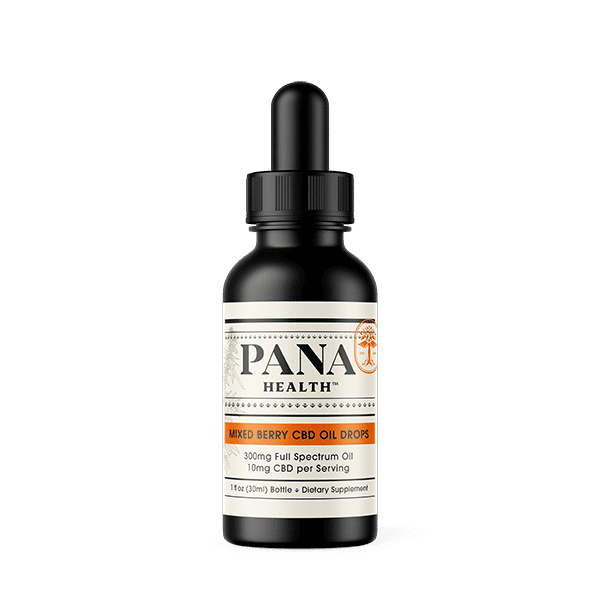
Interactions with the Endocannabinoid System is what causes the different feelings associated with different cannabinoids. But CBD’s interaction does not have the same effect on the receptors as its more popular counterpart, tetrahydrocannabinol (THC).
CBD vs THC
It’s easy to understand why people often confuse CBD with THC. They are both cannabinoids that have been very popular in recent years. But they are not the same. They are not interchangeable. The biggest difference between them is how they interact with the Endocannabinoid System.
THC appears to bind with the receptors in the system. This can create the high that is so commonly associated with Cannabis as it can befuddle normal cognitive skills. It can cause issues with memory and make some basic motor functions very difficult.

-
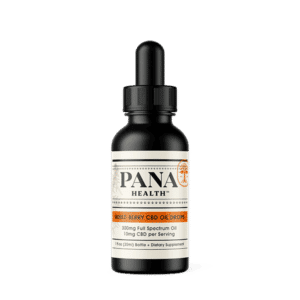
CBD Oil Drops (Full Spectrum)
From: $15.95 Select options This product has multiple variants. The options may be chosen on the product page -
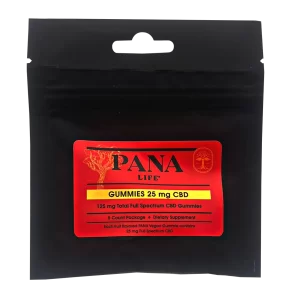
Full Spectrum CBD Gummies TO-GO Pack
$6.95 Add to cart -
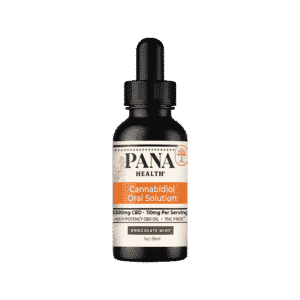
Cannabidiol Oral Solution
$31.95 Add to cart
CBD does not bind with the same endocannabinoid receptors as THC. The enzymes and receptors that CBD interacts with produces unique effects that range from increasing levels of serotonin to adenosine to decreasing an inflammation response. These reactions may put you into a better mood and indirectly help with your inflammation, but they do not create a high.
Another important distinction between these two cannabinoids is legality. As of December of 2018, hemp was made federally legal in the United States (if you want to know more about how this happened, you can read an article about it here). This means that across the country, people can now grow, sell, and buy hemp and hemp-derived products. As hemp is defined as Cannabis with less than 0.3% THC levels, this means that marijuana (Cannabis with more than 0.3% THC) is still illegal in most states. Many have legalized marijuana in some form, usually medical, but very few have legalized it entirely.
As hemp is naturally high in CBD and naturally low in THC, this has, in effect, made hemp-derived CBD legal in the United States, while THC is still illegal in most parts of the country.
Is there a kind of CBD product that will get me high?
There are three main kinds of CBD products. They are known as full-spectrum, broad-spectrum, and CBD isolate. The difference between these products is how many other cannabinoids are in the product along with the CBD. Full-spectrum has the most, with everything from terpenes to a little bit of THC in them. Broad-spectrum is the next with everything but the THC in it. CBD isolate is exactly what it sounds like; CBD and nothing else. Each of these forms of CBD has its own appeal. Full-spectrum takes advantage of what’s called “the entourage effect,” essentially making the effect of the product more robust. Broad-spectrum will provide something similar, but the lack of THC may decrease certain effects. CBD isolate will have the narrowest results of all of the products, but it is a good option for those who need higher doses to achieve their desired outcome.
As you can see, many CBD products are likely to have THC in them. However, these products legally cannot have more than 0.3% THC content in most states (this depends on your state’s laws about marijuana). That is not very much THC. In fact, it is not enough to get most people high. So, it is not likely that there is a CBD product that is legal in all 50 states that can create a high.
Even if there is enough THC in a CBD product to get you high, it is not the CBD that is getting you high, it is the THC.
It is good to remember that some people do experience side effects while taking CBD, even if they are not psychoactive ones. These side effects are usually along the lines of a change in appetite or fatigue. While these are not very serious for most people, they still are not pleasant. CBD may also have an adverse reaction with certain medications. If you are thinking about adding a CBD supplement to your daily routine, please consult with a medical professional first to be sure that any medications you may be on will not interact with the CBD.
If you take anything away from this article, it should be that CBD cannot get you high. It may make you feel calmer, but that is the closest to a high that CBD should bring you.
Those of you who are new to CBD or just really love reading about the cannabinoid should check out Panacea Life Sciences’ website. On there, you can find CBD blogs covering everything from CBD topical cream to CBD pet products. You can also find some great products for you, your dog, or your horse. If you have any questions please contact Panacea Life Sciences through the website or by emailing [email protected].

